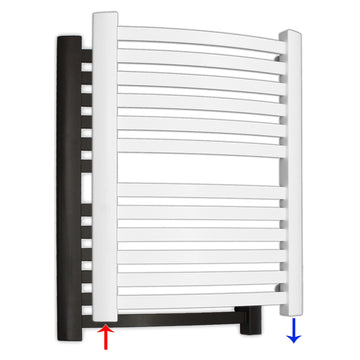In today’s rapidly evolving manufacturing landscape, automation has emerged as a game-changer, particularly in the cosmetic industry. With the increasing demand for cosmetic products driven by a growing consumer base and changing market preferences, manufacturers are adopting automation technologies to enhance production efficiency. This article explores how automation is reshaping the landscape of cosmetic machine production and the myriad benefits it brings to this vibrant industry.
Understanding Automation in Cosmetic Production
Automation refers to the use of technology to perform tasks that would otherwise require human intervention. In the cosmetic industry, this can include everything from the cosmetic machine manufacturers and packaging of products to quality control and supply chain management. By utilizing automated systems such as robotics, conveyor belts, and computer-controlled machinery, manufacturers can significantly reduce human error, decrease production times, and improve overall product quality. As the industry learns to navigate the complexities of modern consumer demands, automation is becoming not just a preference but a necessity.
Efficiency Through Streamlined Processes
One of the most significant impacts of automation on cosmetic machine production is the optimization of production processes. Automated systems streamline workflows by integrating various stages of production, from ingredient mixing to filling and packaging. This seamless integration allows for a continuous production line, which can operate at a much faster pace than traditional, manually operated systems. For instance, automated filling machines can quickly and accurately dispense liquid products into containers, thereby reducing the time spent on each unit and increasing the overall output.Moreover, automated systems can operate around the clock with minimal downtime. While human workers require breaks, shifts, and maintenance, machines can work continuously, significantly upping production capacity. This increase in output meets the scaling demands of the cosmetic industry, particularly during peak seasons or product launches.
Consistency and Quality Control
Quality control is paramount in the cosmetic industry where consumers highly value product consistency and safety. Automation introduces precision that is often unattainable by human operators. Automated cosmetic machines are designed to maintain the exact specifications required for each product, ensuring that every batch adheres to stringent quality standards.Incorporating advanced technologies such as artificial intelligence and machine learning into automated systems allows for real-time monitoring and adjustments. These systems can detect anomalies in production immediately, leading to quicker responses and minimization of defects. Consequently, this ensures that consumers receive high-quality products without variation, fostering brand loyalty and trust.
Cost-Effectiveness Over Time
While the initial investment in automated machinery can be substantial, the long-term benefits often outweigh the costs. An automated production line reduces labor costs by requiring fewer employees to manage and operate machinery. Moreover, enhanced efficiency due to automation often results in lower operational costs, as more products can be produced in a shorter amount of time with fewer errors and less waste.Additionally, reduced material waste is a significant factor in cost reduction. Automated machines can efficiently use raw materials during manufacturing, minimizing the impact of overfills and spills that are more common in manual processes. For cosmetic manufacturers, this translates into fewer losses and more sustainable practices, aligning with the increasing consumer demand for environmentally conscious production.

Adapting to Market Trends
The cosmetic industry is notorious for its ever-changing trends and consumer preferences. Automation allows for greater flexibility in production. Automated systems can be quickly reprogrammed to accommodate new product formulations, designs, or packaging formats. This adaptability is crucial for manufacturers seeking to stay ahead in a competitive marketplace.Furthermore, as trends lean towards customization and personalization—such as bespoke skincare products—automation can facilitate personalized manufacturing processes. By integrating data-driven decision-making with automated production capabilities, companies can swiftly pivot to meet specific customer needs without overburdening their supply chains.
Challenges and Future Prospects
Despite its numerous benefits, the implementation of automation in cosmetic machine production is not without challenges. Initial setup costs, technical complexities, and the need for a skilled workforce to maintain and operate automated systems are factors that companies must consider. Additionally, there can be resistance to change from employees accustomed to manual processes.Looking ahead, the future of automation in the cosmetic industry is bright. As technology advances and becomes more accessible, more manufacturers are likely to embrace automation. Innovations such as artificial intelligence, Internet of Things (IoT) connectivity, and advancements in machine learning will continue to enhance production efficiency, leading to a more responsive and agile cosmetic manufacturing environment.
Conclusion
The impact of automation on cosmetic machine production efficiency is profound, ushering in a new era of manufacturing that emphasizes precision, speed, and adaptability. As the industry evolves, embracing automation seems to be a strategic move for those looking to enhance productivity and remain competitive. While challenges exist, the benefits—ranging from increased efficiency and cost-effectiveness to improved product quality—make a compelling case for the future of automation in the cosmetic industry.

